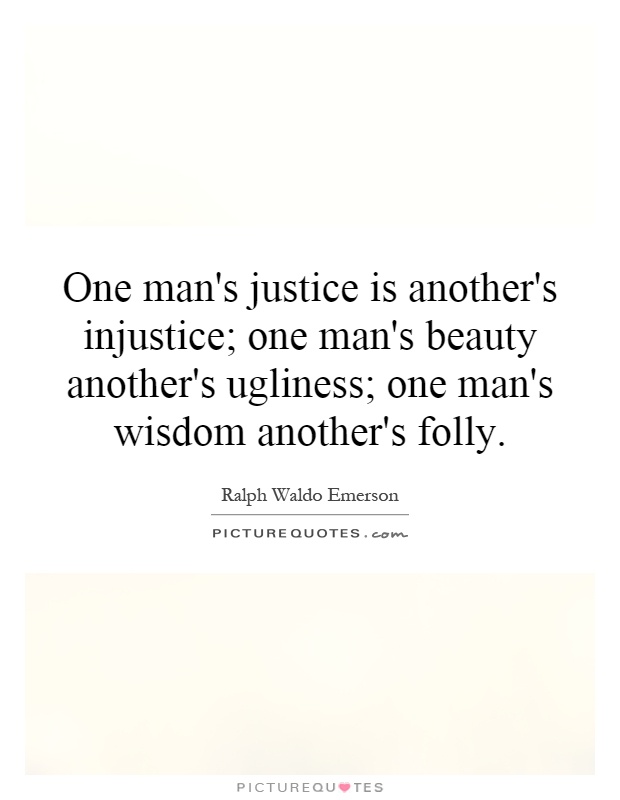One man's justice is another's injustice; one man's beauty another's ugliness; one man's wisdom another's folly

One man's justice is another's injustice; one man's beauty another's ugliness; one man's wisdom another's folly
Ralph Waldo Emerson, a prominent American essayist, lecturer, and poet, was known for his transcendentalist philosophy that emphasized the interconnectedness of all things in the universe. In his essay "Self-Reliance," Emerson explores the idea that one man's justice may be perceived as injustice by another, one man's beauty as ugliness by another, and one man's wisdom as folly by another.Emerson believed that individuals should trust their own instincts and intuition rather than conforming to societal norms and expectations. He argued that true justice, beauty, and wisdom are subjective concepts that vary from person to person. What one person may perceive as just, beautiful, or wise, another may see as unjust, ugly, or foolish. This idea challenges the notion of objective truth and highlights the diversity of human experience and perception.
Emerson's philosophy of self-reliance encourages individuals to think for themselves and follow their own path, even if it means going against the grain of society. He believed that true justice, beauty, and wisdom come from within, not from external sources. By trusting in their own judgment and values, individuals can find their own unique sense of justice, beauty, and wisdom that may differ from the mainstream perspective.
Emerson's ideas on justice, beauty, and wisdom also reflect his belief in the importance of individuality and self-expression. He believed that each person has a unique perspective and contribution to make to the world, and that diversity of thought and experience enriches society as a whole. By embracing the differences in perception and interpretation of justice, beauty, and wisdom, individuals can learn from one another and grow in their understanding of the world.












 Friendship Quotes
Friendship Quotes Love Quotes
Love Quotes Life Quotes
Life Quotes Funny Quotes
Funny Quotes Motivational Quotes
Motivational Quotes Inspirational Quotes
Inspirational Quotes